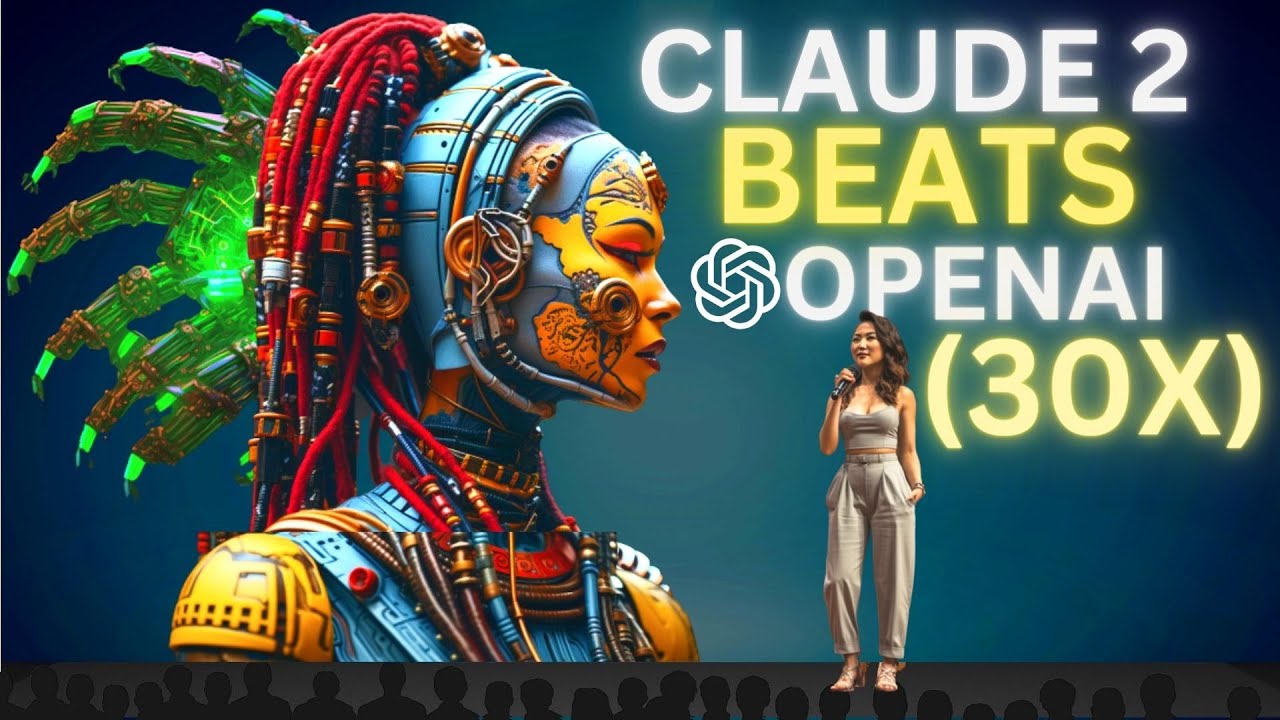Claude-2

In the realm of robotics, Claude-2 stands as a beacon of innovation and progress. Developed by a team of visionary engineers and scientists, Claude-2 represents the culmination of years of research and development in the field of artificial intelligence and robotics. As society grapples with the complexities of modern living, Claude-2 emerges as a solution, offering a promising glimpse into the future where man and machine collaborate seamlessly for the betterment of humanity.
Origins and Development:
The genesis of Claude-2 can be traced back to the ever-evolving landscape of technology and its potential to reshape the way we live and work. Born out of a necessity to address pressing societal challenges, Claude-2 was conceptualized as a multifunctional robotic platform capable of adapting to various tasks and environments. Its development was guided by a commitment to enhancing efficiency, productivity, and overall quality of life.
The journey from concept to reality was fraught with challenges and obstacles, yet the team behind Claude-2 remained undeterred in their pursuit of excellence. Drawing inspiration from nature and existing technological advancements, they meticulously crafted a sophisticated machine that transcends conventional boundaries. Through iterative design iterations and rigorous testing, Claude-2 emerged as a marvel of engineering prowess, equipped with state-of-the-art sensors, actuators, and intelligent algorithms.
Functionality and Applications:
At its core, Claude-2 is designed to augment human capabilities and alleviate the burden of mundane and repetitive tasks. Its versatility enables it to perform a myriad of functions across diverse domains, ranging from manufacturing and logistics to healthcare and hospitality. Equipped with advanced computer vision and machine learning algorithms, Claude-2 possesses the ability to perceive and interpret its surroundings with remarkable accuracy, making it well-suited for tasks that require precision and adaptability.
In the realm of manufacturing, Claude-2 revolutionizes traditional assembly lines by streamlining production processes and optimizing workflow efficiency. Its dexterous manipulators and agile mobility enable it to handle complex tasks with ease, thereby reducing labor costs and minimizing errors. Moreover, its ability to collaborate with human workers in a collaborative manner fosters a synergistic relationship that maximizes productivity and output.
Beyond the confines of the factory floor, Claude-2 finds application in the realm of healthcare, where its empathetic demeanor and tireless work ethic make it an invaluable asset. From assisting surgeons in delicate procedures to providing companionship and assistance to elderly patients, Claude-2 embodies the ethos of compassionate caregiving in an increasingly digitized world. Its ability to analyze vast amounts of data and provide actionable insights empowers healthcare professionals to make informed decisions that enhance patient outcomes and improve overall quality of care.
In the realm of logistics and supply chain management, Claude-2 serves as a reliable and efficient courier, facilitating the seamless transportation of goods across vast distances. Its autonomous navigation capabilities enable it to navigate complex environments with ease, while its robust communication systems ensure real-time tracking and monitoring of shipments. By optimizing route planning and minimizing delays, Claude-2 helps businesses streamline their operations and deliver unparalleled customer satisfaction.
Challenges and Ethical Considerations:
However, despite its myriad benefits, Claude-2 is not without its challenges and ethical considerations. As with any disruptive technology, concerns regarding job displacement and economic inequality loom large. The widespread adoption of robotic automation threatens to disrupt traditional employment models, potentially leaving millions of workers unemployed and disenfranchised. Moreover, the proliferation of autonomous machines raises questions about accountability and liability in the event of accidents or malfunctions.
Furthermore, there are ethical implications surrounding the use of artificial intelligence in decision-making processes, particularly in sensitive domains such as healthcare and law enforcement. The potential for algorithmic bias and discrimination underscores the need for robust regulatory frameworks and ethical guidelines to ensure the responsible deployment of AI-powered technologies.
Conclusion:
Claude-2 represents a paradigm shift in the field of robotics and artificial intelligence, offering a tantalizing glimpse into a future where man and machine coexist harmoniously for the betterment of society. Its multifunctional capabilities and adaptability make it a versatile tool for addressing a wide range of challenges across diverse domains. However, as we embrace the promise of technological innovation, it is imperative that we remain mindful of the ethical implications and societal ramifications of our actions. Only by fostering a culture of responsible innovation and equitable access can we harness the full potential of Claude-2 and similar advancements to create a brighter and more inclusive future for all.





